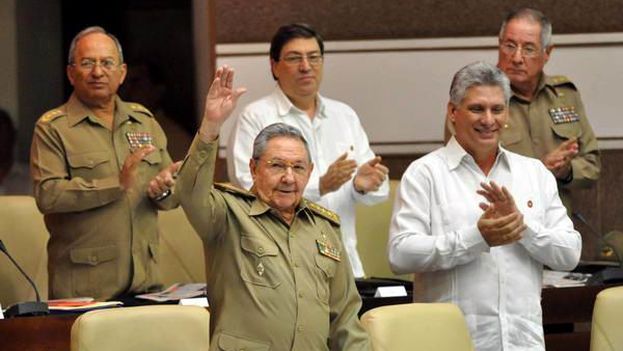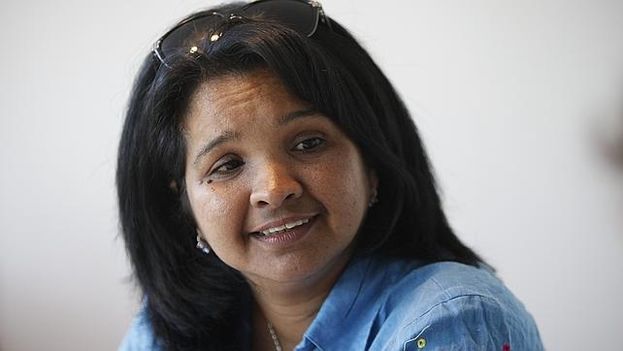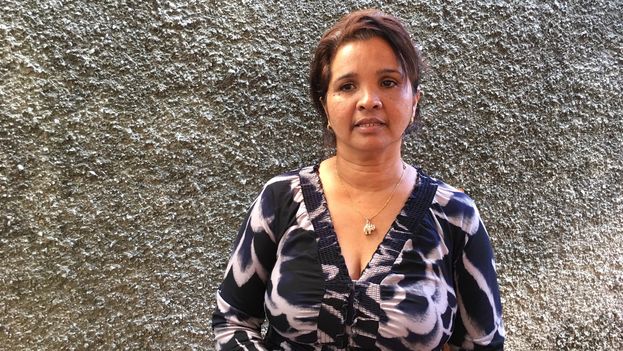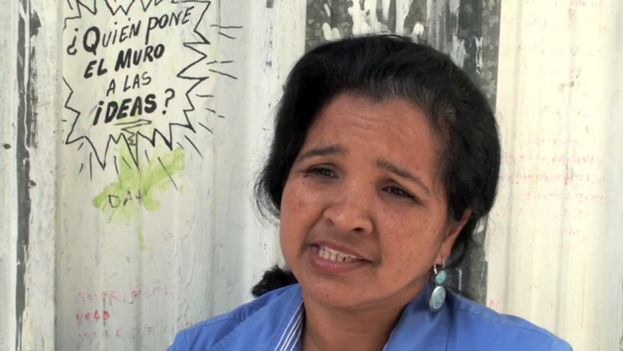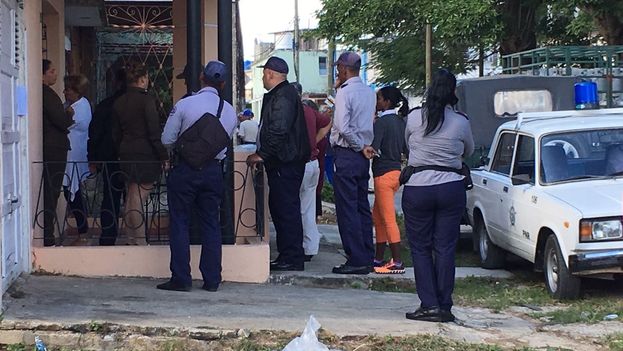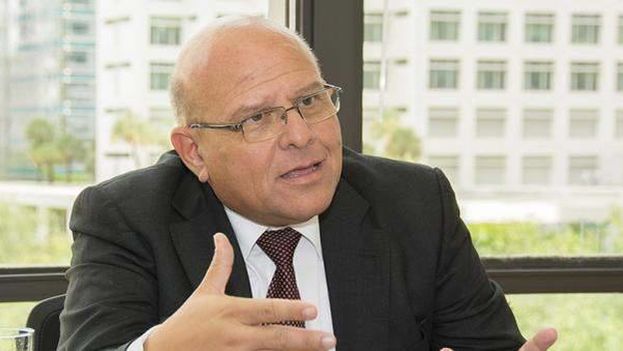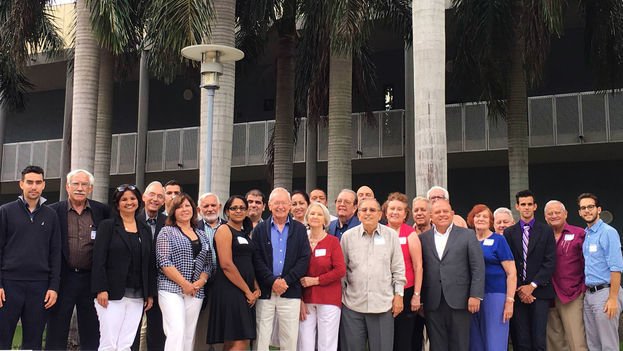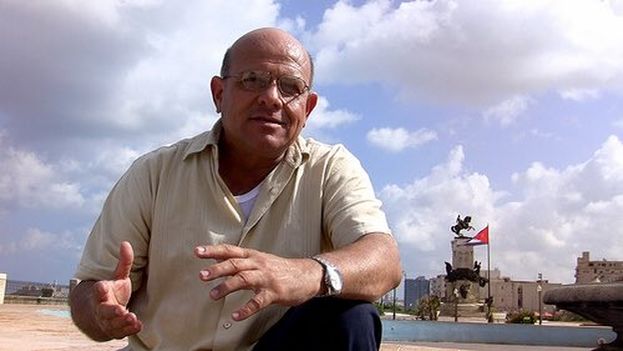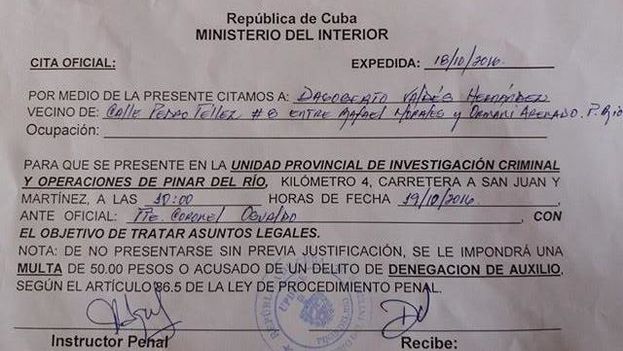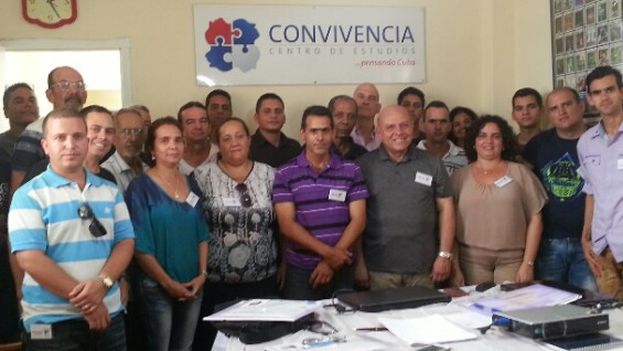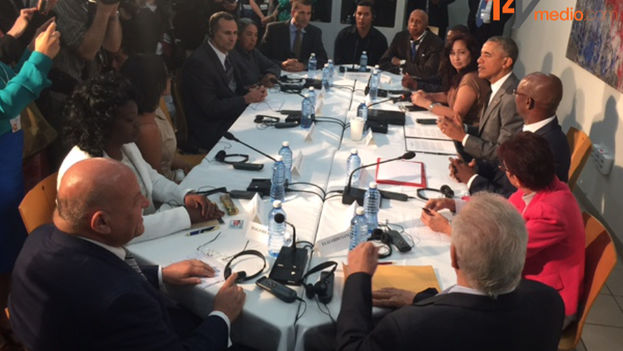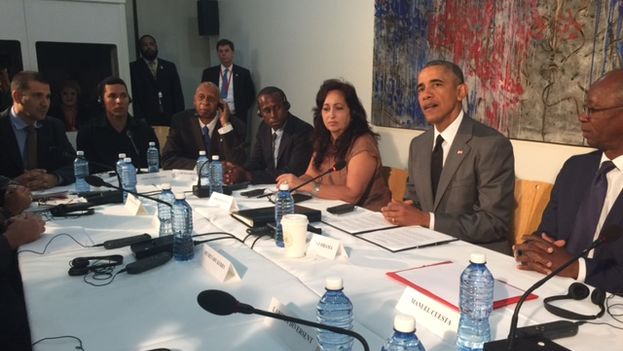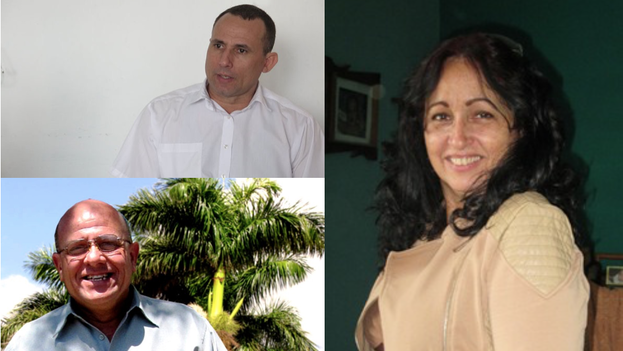
![]() 14ymedio, Dagoberto Valdés Hernández, Pinar del Río, 24 March 2021 — Young Karla María Pérez González could not enter Cuba, the country where she was born, grew up and attended school, because an authority left her stranded at the Panama airport and she had to return to Costa Rica, where she had gone to attend school after being expelled from her [Cuban] University for political reasons. The details of this case have filled the networks in recent days. Now I want to get to the bottom of the matter and highlight the perpetuity and inviolability of the Cuban condition of everyone who has been born in this land.
14ymedio, Dagoberto Valdés Hernández, Pinar del Río, 24 March 2021 — Young Karla María Pérez González could not enter Cuba, the country where she was born, grew up and attended school, because an authority left her stranded at the Panama airport and she had to return to Costa Rica, where she had gone to attend school after being expelled from her [Cuban] University for political reasons. The details of this case have filled the networks in recent days. Now I want to get to the bottom of the matter and highlight the perpetuity and inviolability of the Cuban condition of everyone who has been born in this land.
The 2019 Constitution of the Republic of Cuba, in force today, dedicates six articles on the subject of citizenship. Title IV establishes:
Article 33. Cuban citizenship is acquired by birth or by naturalization.
Article 34. The following are Cuban citizens by birth:
a) Those born in the national territory, with the exception of the children of foreigners who are in the service of their government or international organizations. The law establishes the requirements and formalities for the case of children of foreigners who are not permanent residents in the country. continue reading
The acquisition of another citizenship does not imply the loss of Cuban citizenship
Article 36. The acquisition of another citizenship does not imply the loss of Cuban citizenship.
Article 38. Cubans cannot be deprived of their citizenship, except for legally established causes. The law establishes the procedure to be followed for the formalization of loss and renouncement of citizenship and what authorities are empowered to decide it.
Article 39. Cuban citizenship may be recovered after fulfilling the requirements and formalities prescribed by law.
Article 128. It corresponds to the President of the Republic to:
a) comply with and ensure respect for the Constitution and the laws;
m) decide, in the cases that concerns it, granting Cuban citizenship, accepting resignations to Cuban citizenship and disposing of deprivation of citizenship.
From these constitutional precepts we can conclude that all of us who have been born in this land and are children of Cuban parents are Cuban citizens because of our birth, as established in the aforementioned article 34, while article 38 clearly states that Cubans cannot be deprived of their citizenship except by established legal decision, which is the prerogative of only the President of the Republic.
We are, therefore, Cubans by birth and in perpetuity unless a legal process and the explicit decision of the president deprives a person of it. The person can, however, recover it according to article 39.
We are, therefore, Cubans by birth and in perpetuity unless a legal process and the explicit decision of the president deprives a person of it
So, if we are Cubans and have the same rights and duties, all those recognized by the Constitution must be respected, because no law can go against the Constitution, which is the Magna Carta that governs coexistence among all Cubans. I seem to hear some who might comment that these rules are dead paper and are frequently violated. Well, we can argue at least two things:
Without the Constitution, without laws, and without respecting it, the country is led into chaos, and peaceful coexistence becomes almost unfeasible. Therefore, even theoretically, the Constitution, legitimate or not, can, and should be an instrument of peaceful and civilized order. Otherwise, citizens would fall into total helplessness, and disorder would reign. This is not convenient to anyone, least of all to the authorities responsible for keeping the order. Whoever violates these rules of coexistence not only commits a serious crime, but also threatens national stability and peace.
That they are systematically violated, or that they are interpreted ad libitum, according to the will of those who have the duty to respect them and take care that they are respected, does not mean that these freedoms, rights and duties are not valid, necessary and convenient.
This does not apply only to Cuba; it is part of the universal legal heritage.
To freely enter and leave the country
Another of the current constitutional precepts that nothing and no one should violate because it is also common sense, incontestable ethics and jurisprudence in all countries, is that every citizen has the inviolable right to enter and leave her own country. This is what the current Constitution says in its article 52:
Article 52. People are free to enter, stay, transit and leave the national territory, change their domicile or residence, without any limitations other than those established by law.
In Cuba, a status euphemistically called “regulated” has become almost common and current.
It is in the public domain that this constitutional precept cannot be denied by a lower regulation that leaves the free will of a person, or of an organism that is not a competent court of justice in each case. However, a status euphemistically called “regulated” in Cuba has become almost common and current, which leaves the decision of non-legal persons or institutions the free decision to “regulate” the departures of the country to people who have no pending cause, neither criminal nor civil.
In the same way that we know of cases in which people who have unexpired legal causes are granted an exit permit. Now the case is that, whatever the cause, a Cuban citizen has had to be welcomed by special intervention of a country that is not her own because she has not been able to resolve an immigration procedure whatsoever if she had any. That would correspond to Cuban consulates anywhere in the world to detect it, alert it and resolve it.
Situations like these, and other similar ones in relation to the free exit or entry of the country or province where one resides or was born, only contribute to destabilization and feed mistrust, uncertainty and illegalities.
Several questions arise in these irregular situations: are they somehow justified by authorities, regulations or protocols that are contrary to the Constitution, and therefore legally unacceptable, or are they simply the errors of intermediate officials? Who is or are empowered to make these decisions that go against human rights and against the letter of the Constitution? Why have these errors or unconstitutional regulations not been corrected, if they were? What are the legal mechanisms with which citizens can claim these and other arbitrariness, or do we simply remain defenseless due to attributions of organisms of non-legal character?
The situation in Cuba is not in any condition to add to the economic, health and existential crises these types of events that produce tension and disaffection
The situation in Cuba is not in any condition to add to its economic, health and existential crises these types of events that produce tension and disaffection even greater than those that already exist in the daily life of Cubans.
Whatever the answers to these and other questions, something is clear in the universal conscience and in the international regulations which Cuba is a part of, and that is:
That we are Cubans forever, and that we have the inalienable right to enter, leave, reside and change our address simply because of our condition of being Cuban, and even more, because of our condition of being human.
____________
Editor’s Note: This article was originally published on Convivencia and is reproduced here with the author’s permission.
Translated by Norma Whiting
____________
COLLABORATE WITH OUR WORK: The 14ymedio team is committed to practicing serious journalism that reflects Cuba’s reality in all its depth. Thank you for joining us on this long journey. We invite you to continue supporting us by becoming a member of 14ymedio now. Together we can continue transforming journalism in Cuba.

